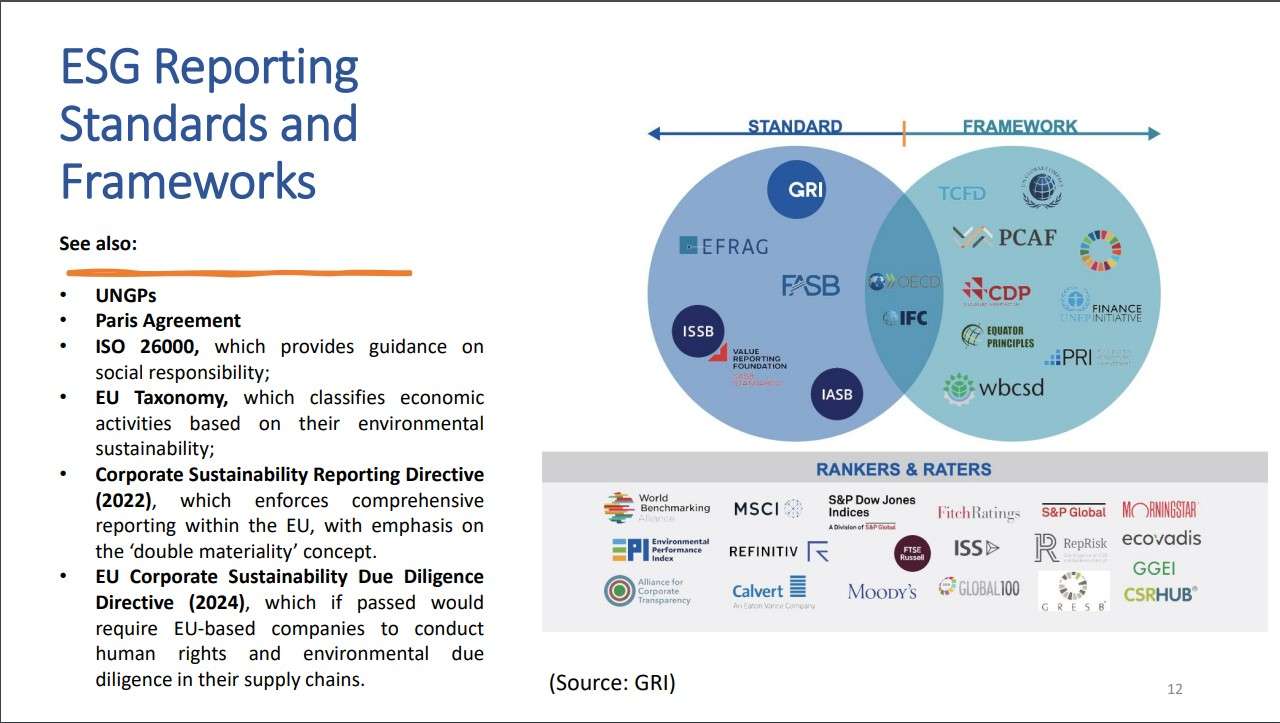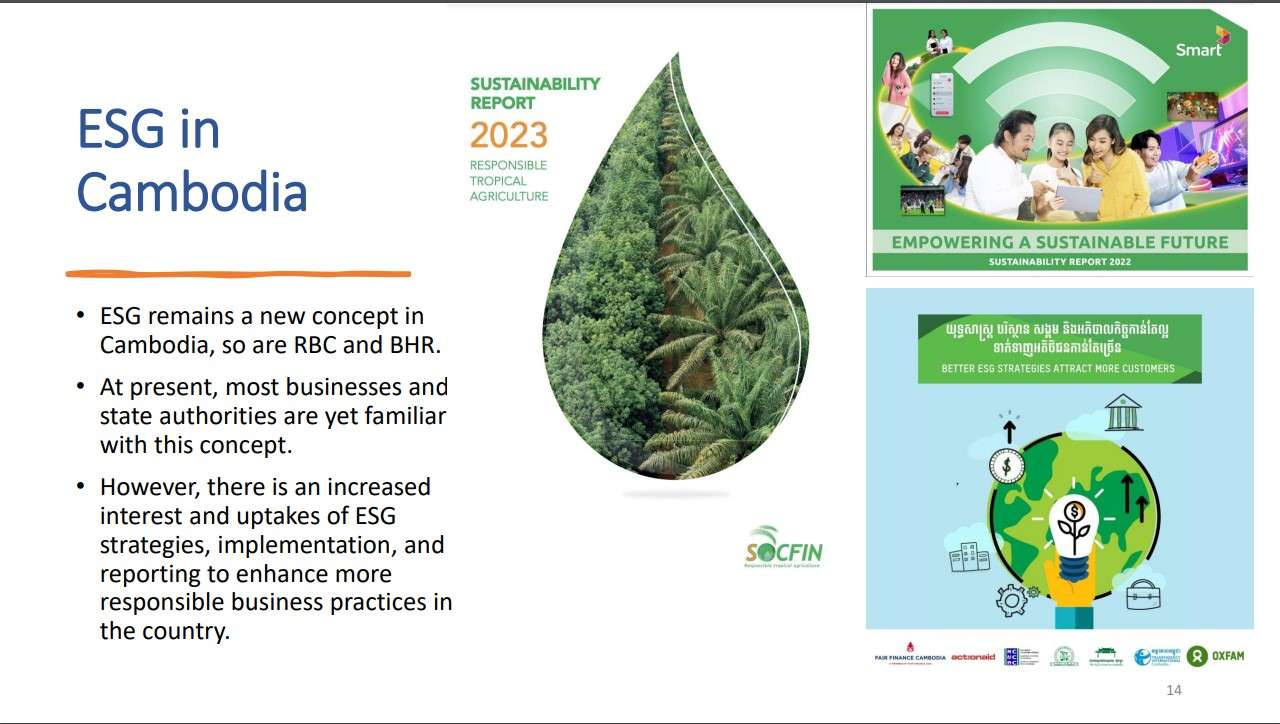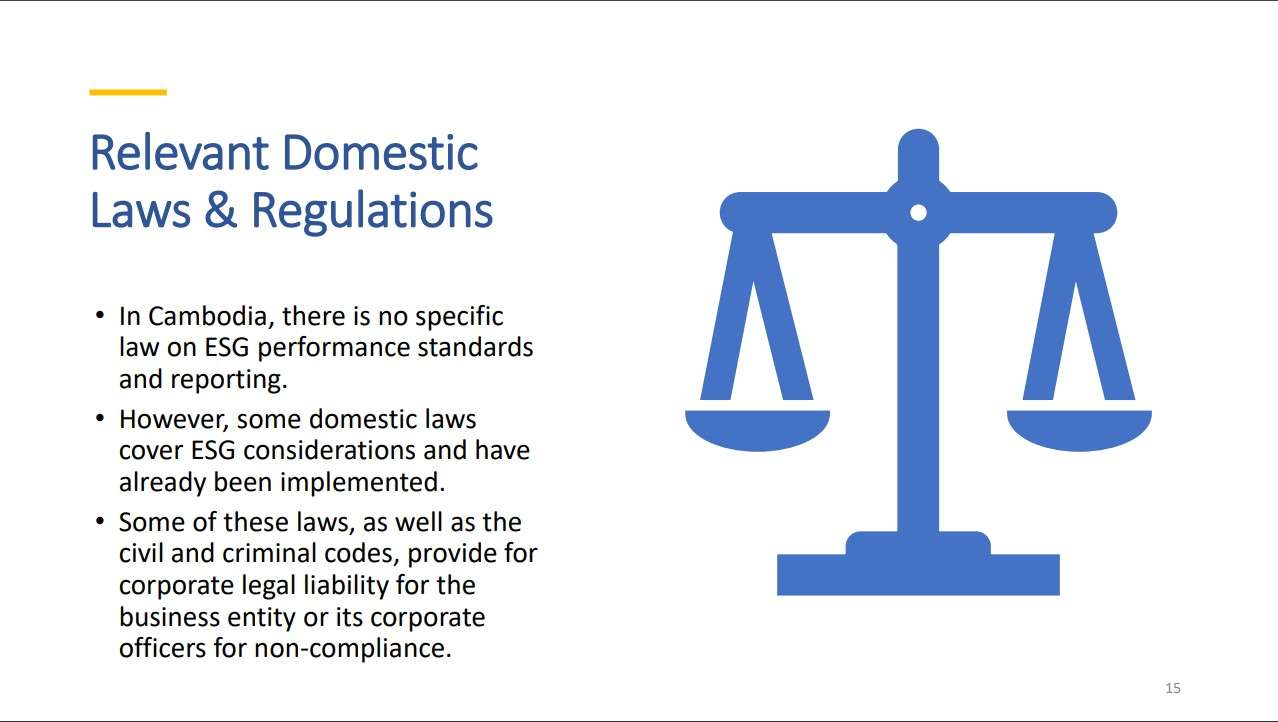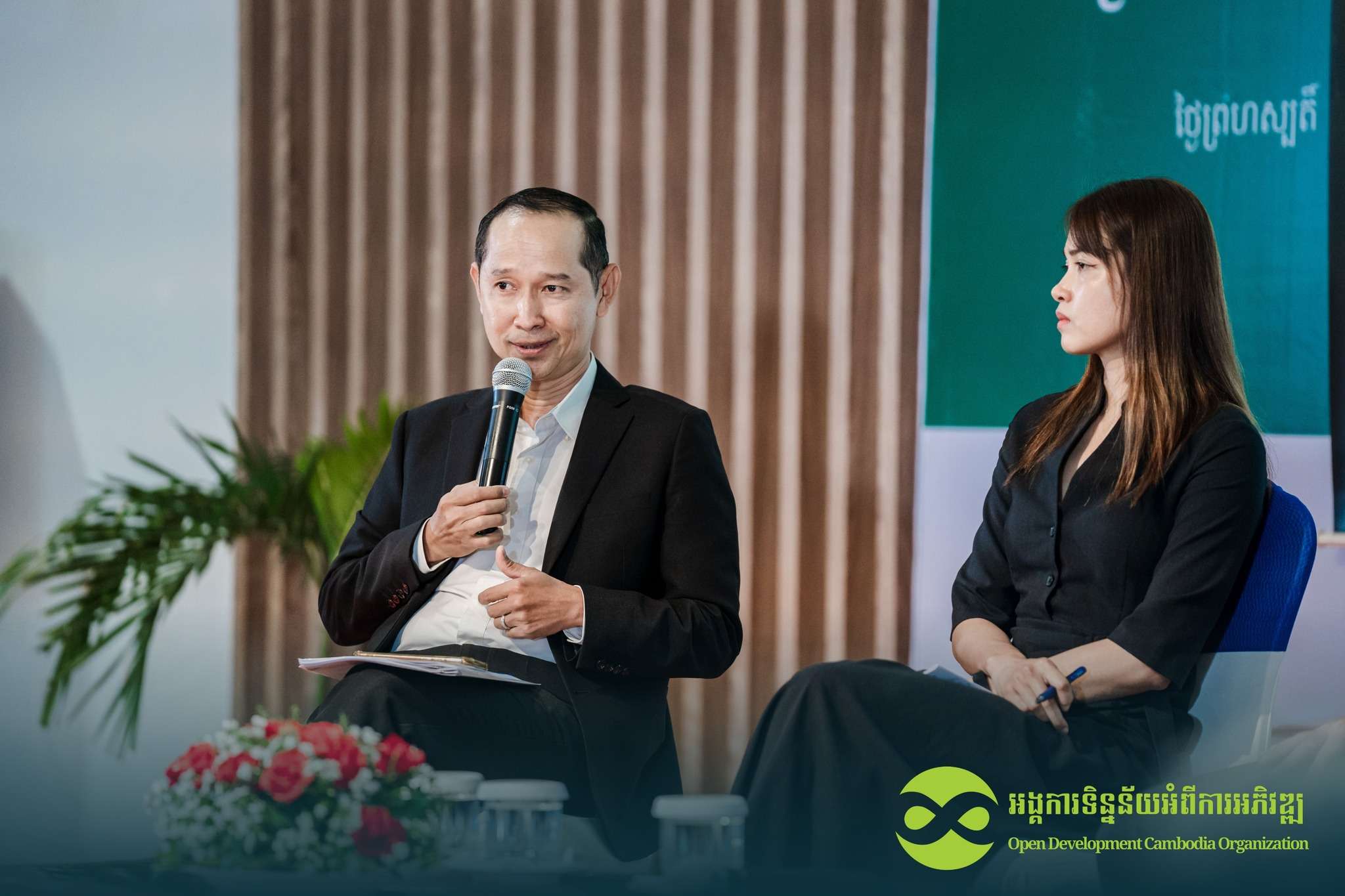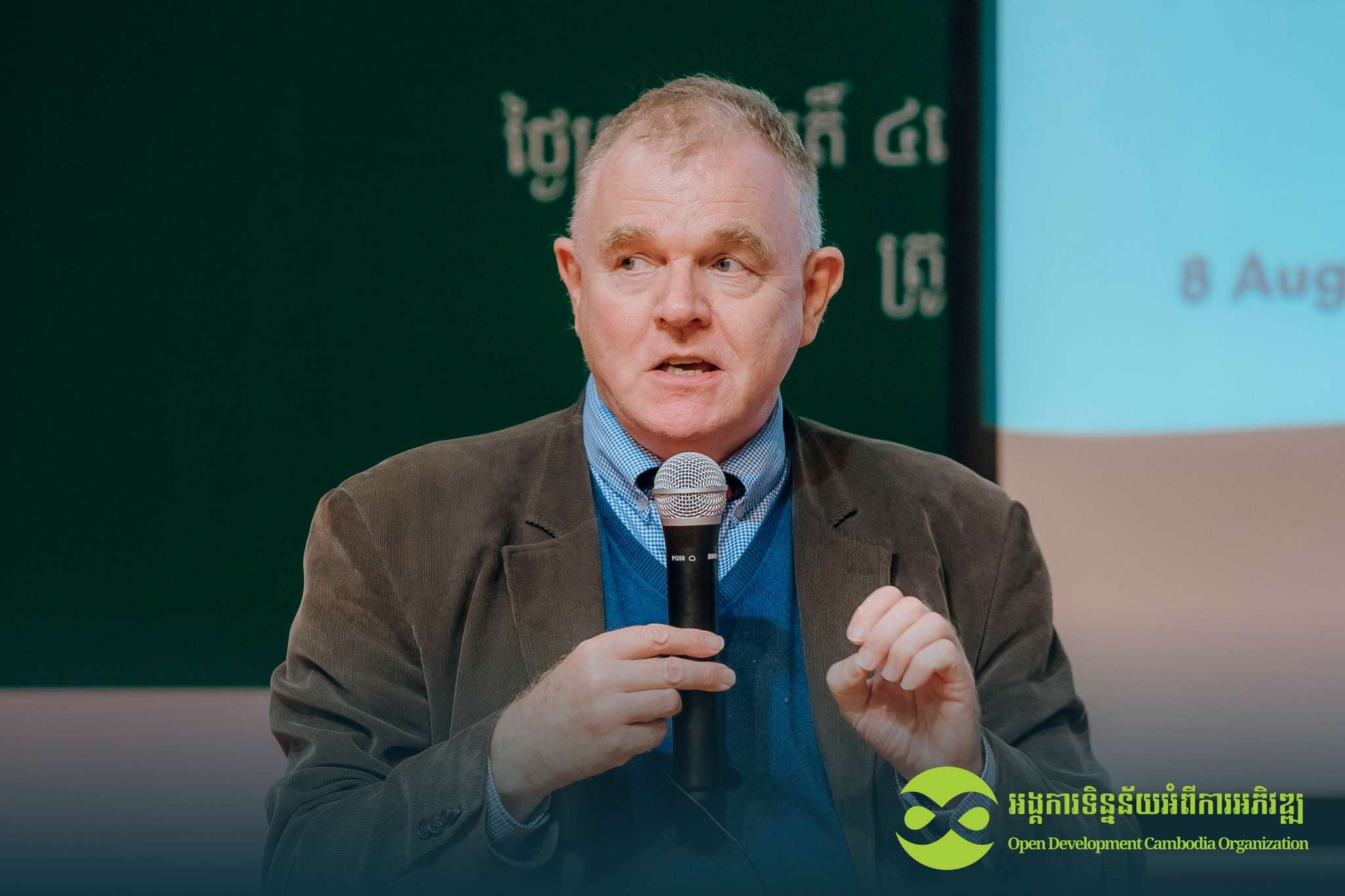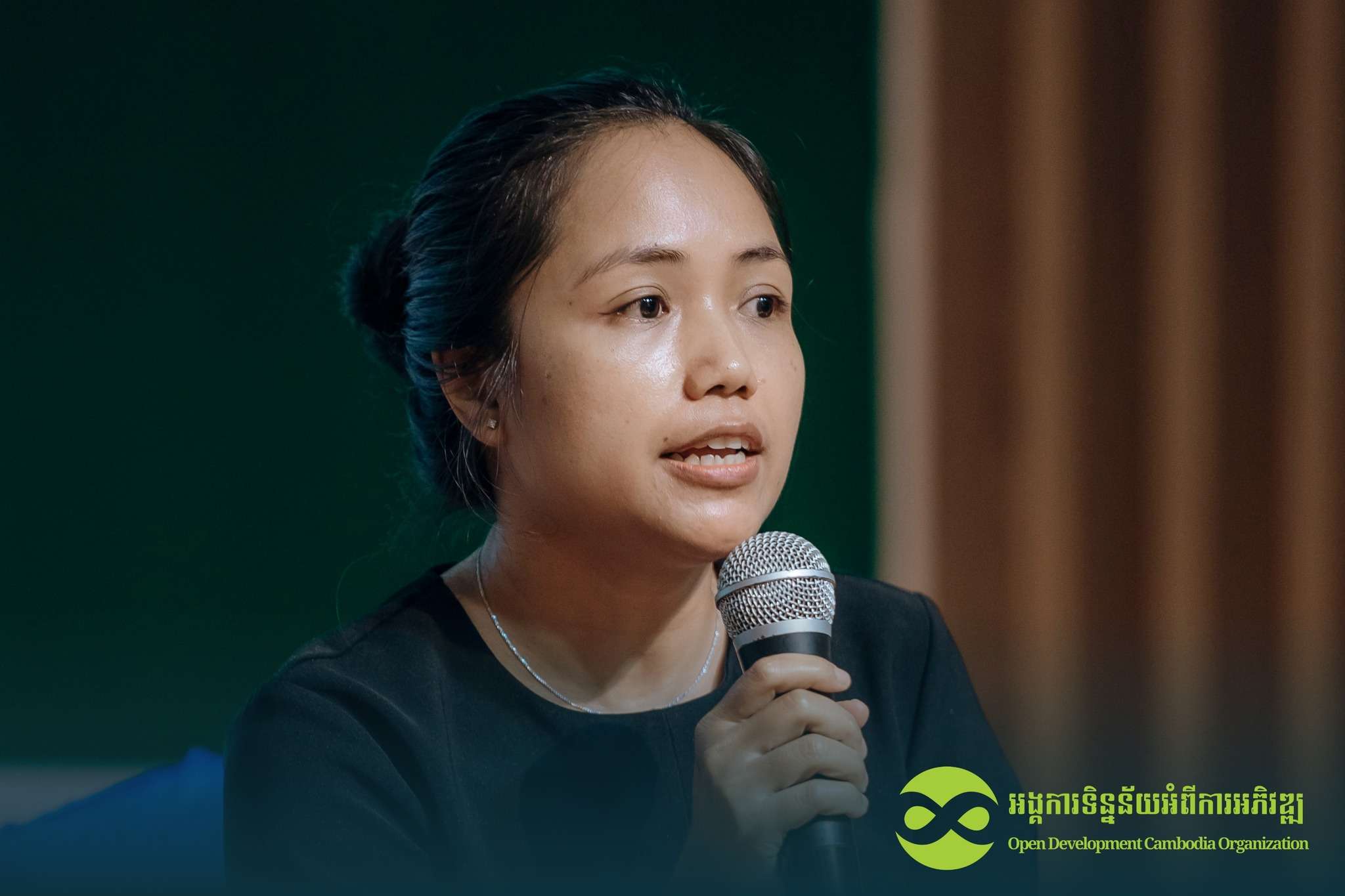Experts shared diverse perspectives and insights on ESG evolving in Cambodia
In recent years, Environmental, Social, and Governance (ESG) practices have gained significant traction globally, and Cambodia is no exception to this trend. As global markets, particularly those based in the European Union, set increasingly stringent environmental regulatory standards, Cambodian businesses face both challenges and opportunities to enhance their image and market access. This blog post will help you explore the current state of ESG in Cambodia, drawing insights from a multi-stakeholder dialogue hosted by the Open Development Cambodia Organization (ODC) on 8 August 2024 at the Himawari Hotel, Phnom Penh.
ESG landscape in Cambodia
The landscape of ESG in Cambodia is rapidly evolving, shaped by both international and domestic factors. In June 2024, the European Parliament and the Council of the European Union formally adopted a Directive on corporate sustainability due diligence. This directive introduces obligations for large companies regarding the adverse impacts of their activities on human rights and environmental protection, extending beyond their operations to include subsidiaries and business partners along their value chain. Additionally, the EU’s Taxonomy Regulation, established in 2020, aims to create a ‘green list’ of environmentally sustainable economic activities, further influencing global business practices.
These international developments are complemented by growing pressures from local regulations, security exchanges, and stakeholders in Cambodia. Consumers are becoming increasingly aware of the environmental and social impacts of businesses, driving demand for ESG disclosure. However, the standardization of ESG practices in Cambodia faces significant challenges, including a lack of comprehensive guidelines, insufficient resources, and issues with data sharing and accessibility.
To address these challenges and foster a more robust ESG environment, ODC convened a diverse group of experts from private sectors, non-governmental organizations, research institutions, and academia. The dialogue aimed to initiate conversations on ESG reporting, raise public awareness, and enhance stakeholder engagement, with the ultimate goal of promoting open, accessible, and collaborative ESG practices in Cambodia.
Understanding ESG principles and their rationale
Dr. Sokphea Young, a Visiting Research Fellow at Queen Mary University of London, provided valuable insights into the evolution and rationale of ESG principles. According to Dr. Sokphea, ESG has transformed from a UN initiative in 2000 to a critical framework for assessing organizations’ environmental and social impacts. It encompasses three key areas: environmental concerns such as climate change and waste reduction; social issues including workplace safety and human rights; and governance matters like board structure and accounting practices. The concept is closely related to sustainability and corporate social responsibility, driven by a combination of regulations, stock exchange requirements, and stakeholder pressure. While various global reporting frameworks exist, the ASEAN region has developed a regional taxonomy called “ASEAN Taxonomy” focusing on environmental and social aspects.
In the Cambodian context, a 2023 survey by EuroCham Cambodia revealed that nearly half of the companies surveyed were implementing ESG programs, indicating a growing adoption of relevant laws and practices. However, significant challenges persist, including the need for clearer regulations, more reliable data, and increased awareness among businesses and the public. Despite these hurdles, ESG is increasingly recognized as a vital tool for risk management, positive social change, and informed investment decisions in Cambodia.
Watch his full presentation on “ESG: Global and Cambodia’s Context.”
Evolving of ESG legislation in Cambodia
Dr. Sao Socheata, a Legal Researcher on Business and Human Rights at the Royal University of Law and Economics (RULE), highlighted the complex landscape of ESG implementation in Cambodia. The country faces several challenges, primarily stemming from the lack of a comprehensive legal framework and specific guidelines for performance, reporting, and assessment. Companies struggle to integrate ESG practices due to difficulties in choosing appropriate frameworks, resource constraints, and the challenge of meeting diverse stakeholder expectations. The persistent focus on traditional corporate social responsibility (CSR) activities and the dynamic global regulatory environment further complicate adoption.
However, Dr. Socheata also pointed out significant opportunities and positive trends. The rise of global due diligence laws, particularly in Europe, is likely to drive ESG adoption among companies operating in Cambodia. Increased stakeholder interest, including from consumers and financiers, coupled with growing government support for responsible business practices, creates a favorable environment for ESG development. The introduction of Cambodia’s new Environmental Code and ongoing labor law revisions provide a stronger foundation for the environmental and social aspects of ESG. These drivers suggest a promising future for ESG implementation in the country, with both the government and private sector showing increased interest in fostering more responsible business practices.
Business perspectives and the role of civil society
From the business perspective, Mr. Samuel Schleipman, Responsible Business Hub (RBH) Coordinator of EuroCham Cambodia, offered valuable insights. He emphasized the growing importance of ESG practices in Cambodia, driven by both local and international regulatory pressures. Business associations like EuroCham Cambodia play a pivotal role in promoting ESG practices by serving as a crucial link between the government and the private sector. Through various initiatives, EuroCham’s RBH acts as an information-sharing platform, raising awareness about ESG and new laws. They organize public-private dialogues to address critical ESG issues, including the inclusion of people with disabilities and the prevention of gender-based violence in the garment sector.
Despite growing interest, there remains significant confusion about the practical implementation of ESG frameworks in day-to-day business operations. The garment sector, given its economic importance in Cambodia, is currently the most attuned to ESG requirements, largely due to European laws on due diligence and corporate supply chain responsibility. However, other sectors such as agriculture, manufacturing, hospitality, and tourism also need to focus on ESG, though specific legal frameworks for these industries are still evolving. In response, business associations aim to assist Cambodian industries in preparing for these new compliance requirements and improving their social and environmental policies, though there’s still a pressing need for more specific, actionable guidance across various sectors of the Cambodian economy.
The role of civil society organizations in promoting ESG practices was highlighted by Mr. Mar Sophal, Policies and Legal Influences (PALI) Program Manager at The NGO Forum on Cambodia (NGOF). As a member of Fair Finance Cambodia (FFC), NGOF has been actively engaged in promoting sustainable finance and CSO training on ESG principles in Cambodia. Through targeted ESG research in critical sectors such as banking and finance and gold mining, NGOF has produced valuable reports and policy briefings that offer recommendations for policy and legal framework reforms. Their ongoing work, including a planned study on environmental and social impact assessments in coastal development projects, demonstrates their commitment to integrating ESG principles across various industries. By collaborating with local communities and leveraging their role as a civil society organization, NGOF continues to play a crucial part in monitoring the environmental and social impacts of business activities, thereby contributing to the broader goal of fostering responsible and sustainable business practices in Cambodia.
Watch the full panel discussion on “Evolving Concepts of ESG, Legislation, and Incentives in Cambodia.”
Governance and culture changes
The discussion also touched upon the practical implementation of ESG principles. Dr. Sreang Chheat, Director of the Centre for Governance and Inclusive Society at the Cambodia Development Resource Institute (CDRI), emphasized the importance of governance as a crucial mechanism for decision-making in company operations. He stressed that the sustainability of companies depends on good governance, effective resource management, and ESG integration. Dr. Kenneth Paul Charman of CamEd Business School supported this view, highlighting the link between good governance and the executive’s commitment to social and environmental responsibility, emphasizing the need to embed sustainability into company culture. Ms. Srey Nak of Sarana Law Firm offered insights into the challenges faced by businesses, particularly small and medium enterprises (SMEs), in implementing ESG practices. She noted that governance can be particularly difficult for smaller businesses with limited resources.
To address these challenges, the experts suggested several strategies: companies should listen actively to stakeholders, even when faced with difficult questions; board directors should include diverse expertise to enhance decision-making; and businesses should prepare for evolving regulatory landscapes, both nationally and internationally.
Watch the full panel discussion on “From ESG Theory and Reporting to Practical Implementation and Impact.”
The role of research and academia
The role of research and academia in advancing ESG practices was also discussed. Experts agree that research plays a crucial role in provoking policy reform discussions, addressing current issues, and sharing knowledge. Academics, think tanks, and technical experts contribute significantly to providing new solutions for global issues and sustainable development across various socio-economic and environmental aspects. Their work helps to bridge the gap between theory and practice, providing valuable insights that can guide policymaking and business strategies in the ESG domain.
Key steps for ESG implementation and recommendations
While the effectiveness of ESG frameworks is still under evaluation, our experts propose several strategies to ensure that ESG contributes positively to Cambodia’s economic growth. First, it’s essential to view reform and commitment as positive steps, acknowledging that the journey toward comprehensive ESG integration is a long-term process. Balancing ESG adaptation with business capabilities and incentives is crucial, as it ensures that implementation remains feasible and beneficial for companies of all sizes. Additionally, improving legal knowledge and understanding of ESG among civil society and the public can foster a more informed and engaged stakeholder base. Making relevant data and information accessible is key to promoting transparency and enabling more effective ESG reporting and assessment. Identifying priority sectors for implementation can prevent overwhelming complications, allowing for a more focused and strategic approach to ESG adoption.
As Cambodia navigates this evolving landscape, collaboration between the government, businesses, civil society, and academia will be crucial. The journey toward full ESG integration will require ongoing efforts, including the development of clearer regulatory frameworks that provide guidance while allowing flexibility in implementation. Enhancing awareness and understanding of ESG principles across all sectors of the economy is necessary, as is building capacity for ESG implementation, especially among SMEs, through training programs and resource sharing. Moreover, fostering a culture of transparency and accountability in business practices, alongside encouraging research and innovation in sustainable business models tailored to the Cambodian context, will be vital steps in this journey.
The collaborative efforts of government, businesses, civil society, and academia will be crucial in shaping a more sustainable and equitable future for Cambodia through the lens of ESG principles. By embracing these challenges and opportunities, Cambodia has the potential to not only meet global standards but also to develop a uniquely Cambodian approach to ESG that addresses its specific economic, social, and environmental needs.


















